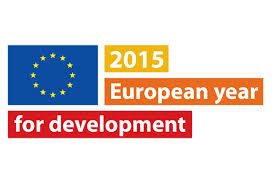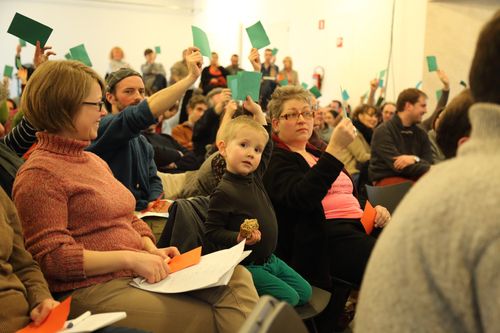Urgenci and its partners have been promoting CSA in all its diversity and fostering exchanges among initiatives from different backgrounds, from the subsistence family-farming model to the well-established organic farms that have been certified already for several years.
 The main objective of the Common Ground for Community-Supported Agriculture in Europe project has been to strengthen the European CSA movement and to establish what is common to all the CSA initiatives in Europe, with a twofold purpose.
The main objective of the Common Ground for Community-Supported Agriculture in Europe project has been to strengthen the European CSA movement and to establish what is common to all the CSA initiatives in Europe, with a twofold purpose.
- Set up the European CSA Declaration-writing process, using a rigorous participatory constructive methodology, to reinforce both the European CSA platform as well as the local and national networks, and foster critical discussions on our values as well as and how to share them widely.
During 2015, the CSA-Declaration group held two European meetings in Milan then Berlin, with participants from 15 countries who drafted a clear document stating our core values and objectives (see attached). National consultations were held in 13 countries with CSA communities, bringing together 400 CSA activists from all regions, to stimulate debate and get constructive feedbacks. In many countries, it was the first national CSA event ever! We successfully meet our aim to have a consolidated draft to amend during the Third European CSA Meeting that will take place in Ostrava (CZ), on September 16-18, 2016.
2. Implement a participatory action-research process to gain deeper insight into the social and economic impacts of CSA on European society, crafting a European CSA Overview with the CSA Research Group and launching a wide census among the European CSAs.
The CSA Research Group met in August 2015 gathering 29 participants from 22 European countries. They first worked on drafting a common definition of what a CSA in Europe is:
“Community supported agriculture (CSA) is a direct partnership between a group of consumers and producer(s) whereby the risks, responsibilities and rewards of farming activities are shared through long-term agreements. Generally operating on a small and local scale, CSAs aim at providing quality food produced in an agroecological way.”
, and designed a participatory action research programme to collect data from all CSAs and produce the first “scientifically proven” European CSA Overview. According to our estimate, 6.292 CSAs were operating in Europe in 2015, producing food for almost one million (969.255) eaters!
Citizens, policy makers and activists alike will benefit from insights in this powerful emerging movement thanks to this comprehensive research report soon to be edited.
The Common Ground project has been a real success, and gave a significant boost to the many CSA activists from all over Europe who actively took part in it. As we had hoped, it provided the opportunity to the growing CSA community to meet and gave them the means to structure a Shared Vision-building process in 2015 in preparation for the third European CSA meeting, to happen in September 2016 in Ostrava, in the Czech Republic.

Taking action in our community for a decent life for all and a greater respect of the land that feeds us is what CSA is about. We hope our experience within the EYD2015 framework will inspire more Europeans to engage and become involved in development and solidarity throughout Europe.



